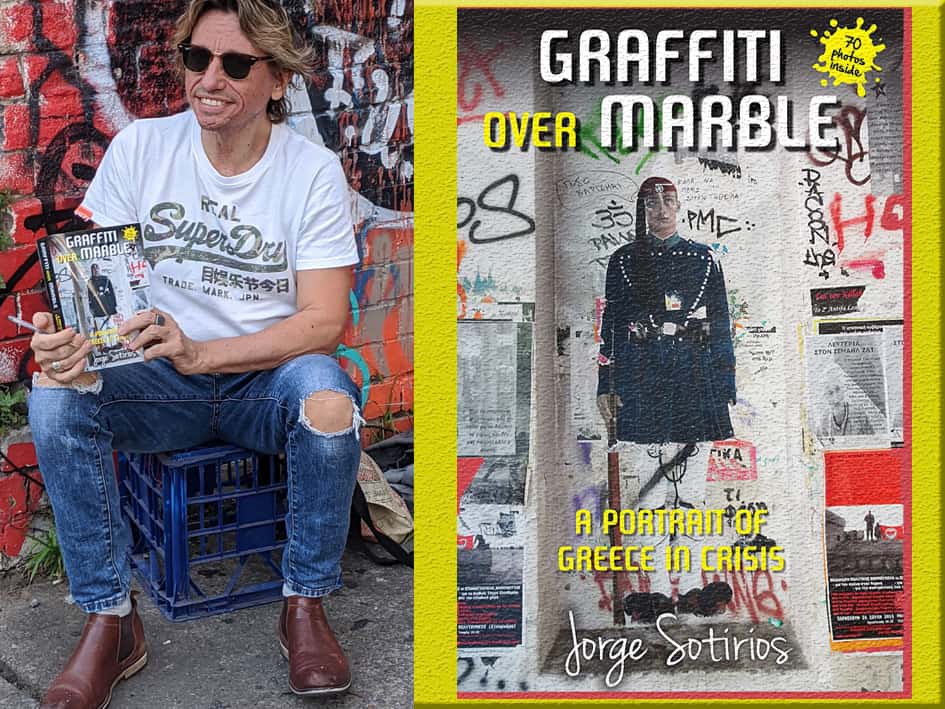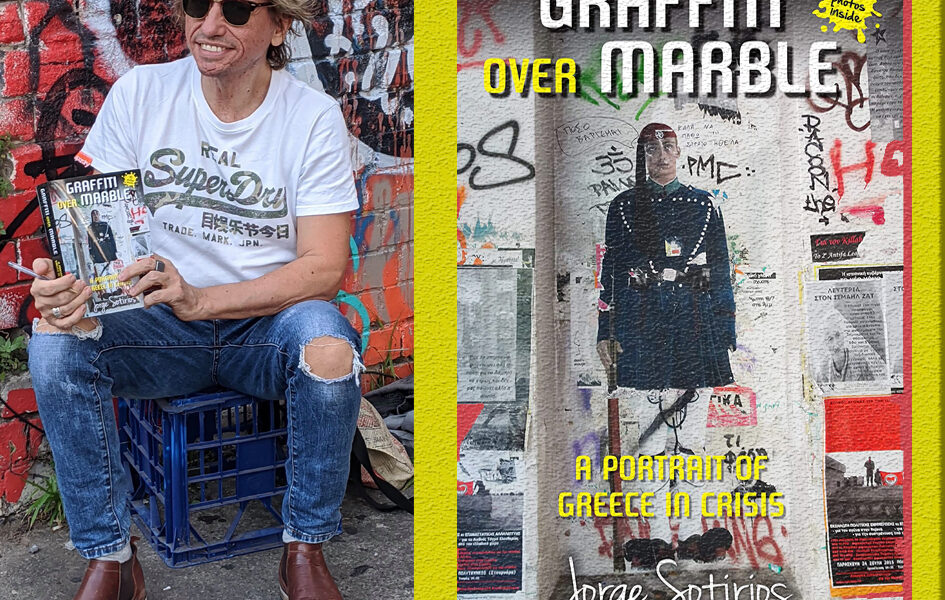
The latest offering by Greek Australian author Jorge Sotirios is an observational study in the psyche of a country in crisis, and that country is none other than his ancestral home, Greece.
Titled, “Graffiti Over Marble: A Portrait of Greece in Crisis” and the product of nearly a decade’s worth of exploratory trips to Greece, the work has been submitted to the annual NSW Premier’s Literary Awards, where Sotirios will compete with more than 100 of his peers for the honour.
Past winners of the award included such notable writers as Michelle de Kretser, Peter Carey, David Malouf AO, Thomas Keneally AO, Bruce Pascoe, Leah Purcell, Jane Campion, Jaclyn Moriarty and Helen Garner. Total prize money in 2021, including sponsored awards, is up to $305,000.
The awards will be judged by an independent committee of writers, academics, critics and other sector professionals who have been appointed by the NSW Premier or the Minister for the Arts or their delegates.
“Graffiti Over Marble: A Portrait of Greece in Crisis” explores the human cost of the Greek economic crisis. With its myriad voices and vibrant characters, this memoir focuses on a turbulent drama played out in the street, inside the home, at the workplace and within cafes and tavernas. From Athens to the traditional village, from remote islands to the Balkan borderlands, a portrait emerges of a nation under siege.
“One of the most impressive and monumental books ever written on the impact of the economic crisis on the fabric, life and culture of the Greeks. Something between Ernest Hemingway’s early journalism and Patrick Leigh Fermor’s cultural description of Greece (with a pinch of Gonzo journalism),” says the distinguished author, academic and polymath, Professor Vrasidas Karalis from the University of Sydney.
Since 2012, Sotirios has watched up close the unemployment soaring, the demonstrations multiplied, and the standards of living plummeting to greater depths. Who to blame remains a never-ending story? The media, saturated with Molotov cocktails and soup kitchen queues, provides ready-made images for a perplexing conundrum. A 21st century European nation that lifted itself from abject poverty a mere generation ago, suddenly become a warning sign for Europe in financial ruin.
Why then a portrait? Sotirios claims he needed a large canvas to properly cover the diversity of the land and its people. By creating a mosaic composed of characters, ideas, moods and feelings, he gives a human face to the damning statistics. “It’s one thing to read Varoufakis on the inner workings of the EU financial elite (Adults in the Room), but it’s another to get the view from the street, inside the home, and inside the heads of the young and the old”, Sotirios reckons, delayed dreams, dented pride and all.
“I was especially interested in workplace change. I made efforts to visit the steelyards, shipbuilding industry, and olive oil presses to experience how vicarious employment took root: short term contracts, casualisation, the exploitation of youth, that sort of thing”. What about its professional class which left in droves? “Major exodus”, Sotirios continues, “many stayed put having little alternative, whist others with specialised skills sought a new life in the UK, the US, Australia too….”. Australia’s postwar immigrant drive has seen the grandchildren return on visas as healthcare professionals, kitchen chefs, but also as start-up entrepreneurs and bio-medical technicians. One country’s loss is another’s gain in a competitive global environment. The book reads as a cautionary tale of what happens when a sovereign nation signs away its gains for an illusory economic advantage. It’s not all doom and gloom though. The book’s humour relies on its outlandish characters and absurdities as they face economic upheaval.
In any case, the author remains hopeful that the next generation will redress the wrongs. Asserting that the Greek resilient spirit is abundant, Sotirios maintains that for Greece to prosper it needs to re-invent itself. The remarkable graffiti (the book includes 70 photos) has led to Athens being described as “the new Berlin”, one that Sotirios concurs with.
British broadcaster of #ThisIsACoup, Paul Mason, claims Sotirios captured the epic resistance well by documenting the “shouts and screams scribbled across the city walls”.
Professor of Modern Greek, Vrasidas Karalis, goes so far to say it’s the most impressive and monumental book ever written on the Greek crisis.
Get it and see for yourself.
More information on the book can be found HERE.


